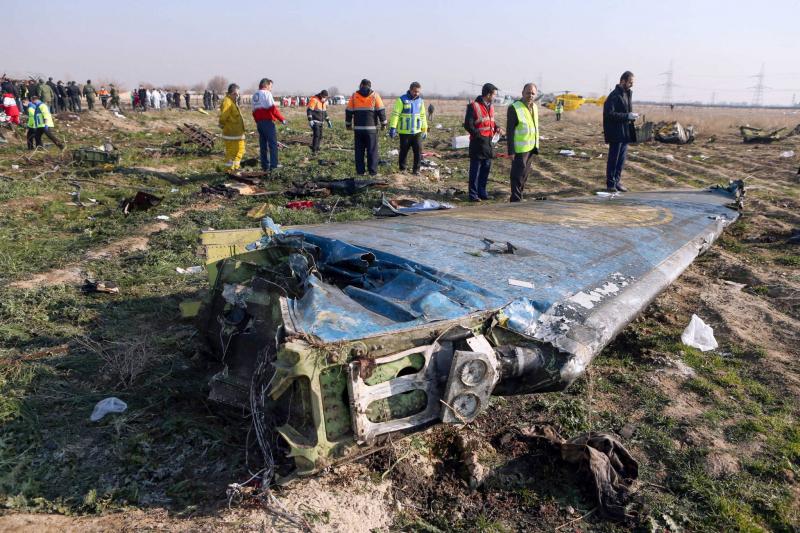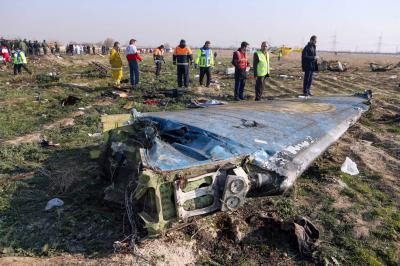Human Rights Watch revealed that Iranian authorities have launched a campaign of harassment and violations against the families of those killed in the downing of Ukrainian passenger plane PS752 by the Islamic Revolutionary Guard Corps in January 2020. Human Rights Watch spoke to 31 family members of the victims and individuals with direct knowledge of how authorities treated these families. They reported that Iranian security agencies arbitrarily detained, summoned, and subjected family members to abusive questioning, torture, and other forms of mistreatment.
The organization noted that the responsible authorities did not return the victims' belongings to their relatives and interfered in burial and memorial services, seemingly attempting to curb accountability efforts. Michael Page, Deputy Director for the Middle East at Human Rights Watch, stated: "The Iranian Revolutionary Guard killed 176 individuals without a shred of accountability, and now Iranian security agencies are committing violations against the victims' relatives to crush any hope for justice. Instead of trying to regain the trust of the public through a transparent investigation and fair treatment of the families, the authorities are again silencing efforts aimed at achieving accountability."
On April 6, 2021, Iranian authorities announced that they had charged ten individuals for their role in the incident, but did not provide any public information about their identities, ranks, or the charges against them. Iranian authorities claimed that a "human error" by a missile operator led to two surface-to-air missiles being fired at the plane. However, the authorities did not disclose conclusive evidence supporting this claim nor did they provide details about their judicial investigation. The cabinet announced that it had allocated $150,000 in compensation for the family of each passenger.
The organization confirmed that the authorities harassed and intimidated family members of the victims. Relatives reported that authorities intervened in several cases during burial and memorial services, pressured families to accept the government’s description of their loved ones as "martyrs," and published photos and videos without the families' consent during the ceremonies. At least 16 individuals reported that security agencies threatened them to prevent them from participating in interviews with foreign media or tracked or summoned their relatives or friends who attended the memorials, even photographing those who attended. In some cases, security forces interrogated or detained family members for several hours.
In at least one case, authorities tortured an individual in custody and mistreated him. In another instance, plainclothes security personnel sought to meet with a family member who publicly criticized the authorities’ actions and threatened that person with legal action. In at least three cases, authorities threatened family members with "consequences" unless they deleted social media posts criticizing the government’s lack of accountability.
One individual from a victim's family reported that half an hour before the memorial service, intelligence officials called and requested its cancellation. They added, "We decided not to cancel the gathering. But you can imagine the tension we felt every moment because we were worried someone might say something political [and get in trouble with the authorities]." Some indicated that the authorities returned important documents to the victims but did not return valuables, such as jewelry and electronic devices.
Under international human rights law, Iranian authorities are obligated to investigate unlawful killings and prosecute the perpetrators, impose appropriate penalties, and provide full redress to victims and their families. According to the organization, interviews with family members and others and a review of available information demonstrate that government harassment and intimidation of families have continued for the past 14 months as families seek to uncover the truth and achieve justice and accountability.
Javad Soleimani, who lost his wife, Elnaz Nabi, in the plane's downing, reported that the Ministry of Intelligence’s branch in Zanjan, northwestern Iran, summoned him after he criticized Friday prayers in the city during his wife's memorial service. A revolutionary court summoned a family member to face charges due to public criticism of the Revolutionary Guards and the subsequent actions of the authorities.




